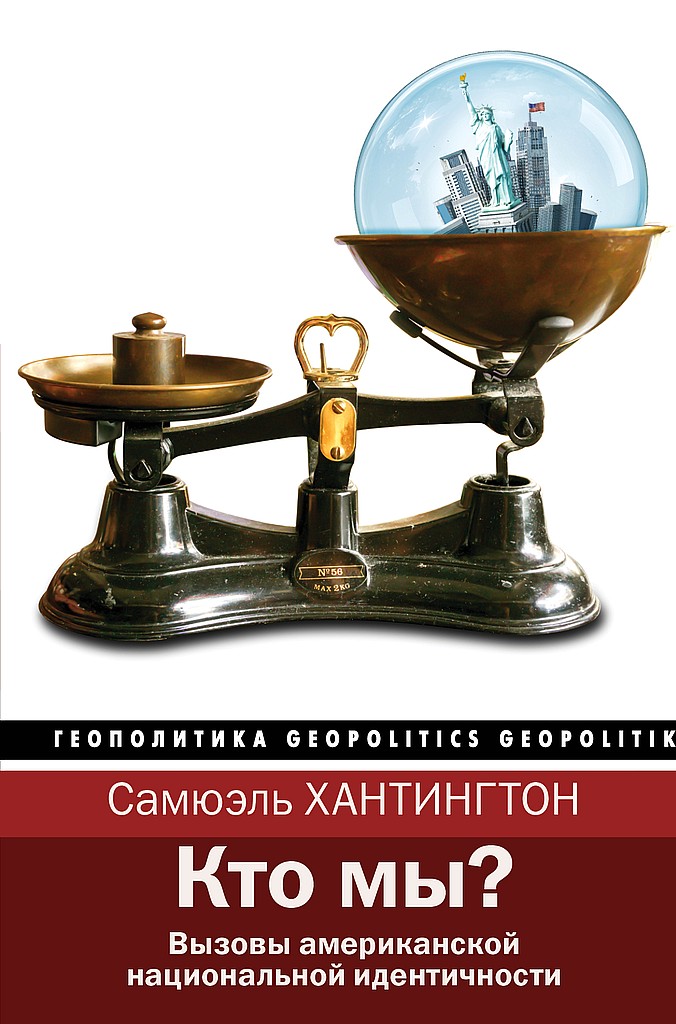quoted in Robert D. Kaplan, «Travels into America’s Future»,
Atlantic Monthly, 282 (July 1998), p. 60–61.
{427} New York Times, 3 May 1998, p. 26; New York Times, 19 September 1999, p. 18.
{428} New York Times, 17 July 2000, p. A20.
{429} Sosa, American Dream, p. 205–207, 211.
{430} Washington Post, 8 September 1996, p. X03; Washington Post, 17 August 2000, p. C4.
{431} Georgiy Arbatov, «Preface», in Richard Smoke and Andrei Kortunov, eds., Mutual Security: A New Approach to Soviet-American Relations (New York: St. Martin’s, 1991), p. xxi; The original version of this quotation was slightly different, New York Times, 8 December 1987, p. 38.
{432} David M. Kennedy, «Culture Wars: The Sources and Uses of Enmity in American History», in Ragnhild Fiebig-von Hase and Ursula Lehmkuhl, eds., Enemy Images in American History (Providence, RI: Berghahn, 1997), p. 355; John Updike, Rabbit at Rest (New York: Alfred A. Knopf, 1990), p. 442–43.
{433} «Waiting for the Barbarians», by C. p. Cavafy, from Six Poets of Modern Greece, edited by Edmund Keeley and Philip Sherrard, (New York: Alfred A. Knopf, 1968). Reprinted with permission from Thames & Hudson, London. For one typical use of this poem, see Col. S. Nelson Drew, USAF, NATO From Berlin to Bosnia: Trans-Atlantic Security in Transition (Washington: National Defense University, Institute for National Strategic Studies, McNair Paper 35, January 1995), p. 36.
{434} Bruce D. Porter, «Can American Democracy Survive?» Commentary, 96 (November 1993), p. 37–40; Robert Putnam, Bowling Alone: The Collapse and Revival of American Community (New York: Simon & Schuster, 2000), p. 272, 267–68; Philip A. Klinker and Rogers M. Smith, The Unsteady March: The Rise and Decline of Racial Equality in America (Chicago: University of Chicago Press, 1999); Michael C. Desch, «War and Strong States, Peace and Weak States?» International Organization, 50 (Spring 1996), p. 237–68.
{435} Daniel Deudney and G. John Ikenberry, «After the Long War», Foreign Policy, 94 (Spring 1994), p. 29
{436} Paul E. Peterson, «Some Political Consequences of the End of the Cold War» (Cambridge: Harvard University, Center for International Affairs, Trilateral Workship on Democracy, Memorandum, 23–25 September 1994), p. 4–9.
{437} John W. Dower, War Without Mercy: Race and Power in the Pacific War (New York: Pantheon, 1986), p. 10; John Hersey, Into the Valley: A Skirmish of the Marines (New York: Knopf, 1943), p. 56; Kennedy, «Culture Wars», in Enemy Images, p. 354–55.
{438} Charles Krauthammer, «Beyond the Cold War», New Republic, December 19, 1988, p. 18.
{439} U. S. Department of State, Office of Counterterrorism, «Foreign Terrorist Organizations», 23 May 2003, and «Overview of State-Sponsored Terrorism», 30 April 2003; Boston Globe, 7 May 2002, p. A19.
{440} Steve Farkas et al, A Lot to Be Thankful for: What Parents Want Children to Learn About America (New York: Public Agenda, 1998), p. 10.
{441} «How Global Is My Company?» Communiqué, Global Business Policy Council, A. T. Kearny, No. 2 (Fourth Quarter, 2000), p. 3.; Statement by John Davey, Directorate of Intelligence Analysis, television interview, 11 March 1999.
{442} Adam Smith, An Inquiry into the Nature and Cause of the Wealth of Nations (Chicago: University of Chicago, 1976), vol. 2, p. 375–76, quoted in Walter Berns, Making Patriots (Chicago: University of Chicago Press, 2001), p. 59–60.
{443} James Davison Hunter and Josh Yates, «In the Vanguard of Globalization: The World of American Globalizers», in Peter L. Berger and Samuel Huntington, eds., Many Globalizations: Cultural Diversity in the Contemporary World (New York: Oxford University Press, 2000), p. 352–57, 345.
{444} John Micklethwait and Adrian Wooldridge, A Future Perfect: The Challenge and Hidden Promise of Globalization (New York: Crown Business, 2000), p. 235; «How Global Is My Company?» Global Business Policy Council, p. 4.
{445} Quoted in Hunter and Yates, «In the Vanguard of Globalization», in Many Globalizations, p. 344.
{446} Manuel Castells, The Rise of the Network Society, 1 (Cambridge: Blackwell, 1996), p. 415, quoted in Micklethwait and Wooldridge, A Future Perfect, p. 242.
{447} Adam Clymer, «The Nation’s Mood», New York Times Magazine, December 11, 1983, p. 47.
{448} Robert B. Reich, «What Is a Nation?», Political Science Quarterly, 106 (Summer 1991), p. 193–94; Alan Wolfe, «Alien Nation», New Republic, 26 March 2001, p. 36; Micklethwait and Wooldridge, A Future Perfect, p. 241–42.
{449} Martha Nussbaum, «Patriotism and Cosmopolitanism», in Martha C. Nussbaum et al, For Love of Country: Debationg the Limits of Patriotism (Boston: Beacon Press, 1996), p. 4–9; Amy Gutmann, «Democratic Citizenship», ibid., p.68–69; Richard Sennett, «America Is Better Off Without a ‘National Identity’», International Herald Tribune, 31 January 1994, p. 6; George Lipsitz, «Dilemmas of Beset Nationhood: Patriotism, the Family, and Economic Change in the 1970s and 1980s», in John Bodnar, ed., Bonds of Affection: Americans Define Their Patriotism (Princeton: Princeton University Press, 1996), p. 256; Cecilia E. O’Leary, «‘Blood Brotherhood’: The Racialization of Patriotism, 1865–1918», in Bodnar, ed., Bonds of Affection, p. 55ff; Betty Jean Craige, American Patriotism in a Global Society (Albany: State University of New York Press, 1996), p. 35–36; Peter Spiro, «New Global Communities: Non-Governmental Organizations in International Decision-Making Institutions», Washington Quarterly, (18 Winter 1995), p. 45.
{450} См. Jeremy A. Rabkin, Why Sovereignty Matters (Washington, D. C.: AEI Press, 1998), p. 51ff; Filartiga v. Pena-Irala, 630 F.2d 876 (2nd Cir., 1980).
{451} Rabkin, Why Sovereignty Matters, p.56–58, 138.
{452} Richard Rorty, Achieving Our Country: Leftist Thought in Twentieth-Century America (Cambridge: Harvard University Press, 1998), p. 15; Richard Rorty, «The Unpatriotic Academy», New York Times, 13 February 1994, p. E15; Robert Bellah, The Broken Covenant: American Civil Religion in Time of Trial (Chicago: University of Chicago Press, 1992), p. xii — xiii.
{453} Strobe Talbott, «The Birth of the Global Nation», Time, 20 July 1992, p. 20.
{454} Washington Post, 16–20 June 1989, ABC-Washington Post poll, September 2002, reported in New York Times, 6 July



